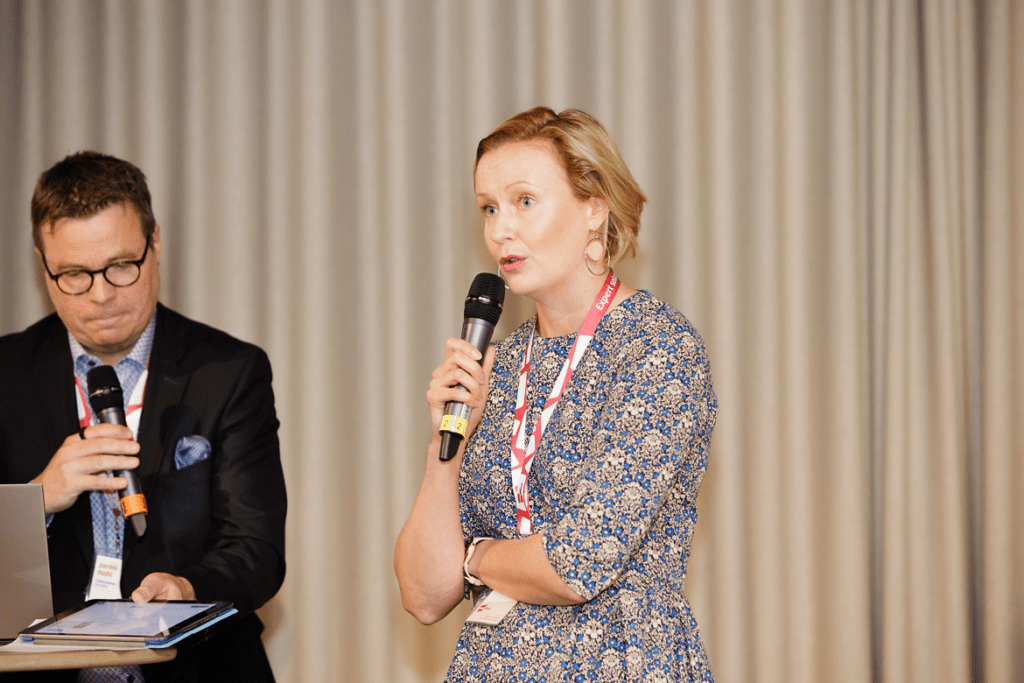Finland is Developing a Model for the Assessment and Reimbursement of Digital Therapies
Finland is developing a model to streamline the adoption of digital healthcare solutions.
Planning of a medicines data repository compiling different data sets is well underway, which is good. Fimea and Kela manage key medicines data. Currently, the useability of the information published by authorities is, however, limited, and it is not always possible to respond to the constantly developing usage needs. Nationally compiled data could be utilised for different purposes related to pharmacotherapies and logistics as well as the needs related to control, monitoring, prediction and knowledge-based management.
According to Pharmacist Heidi Tahvanainen, a medicines data repository is absolutely necessary. For example, plenty of parallel work is conducted in the public sector pharmaceutical service in hospital pharmacies when completing missing medicines data. In addition, it is currently difficult to form a comprehensive situational picture of the use of medicines and the Finnish pharmaceutical market.
According to Tahvanainen, authorities should improve their data production and thus ensure more integrated and comprehensive medicines data for different purposes. There is no other alternative.
The medicines data repository package is being assessed at the Ministry of Social Affairs and Health.
– It is an investment in steering the use of medicines in order for pharmacotherapies to work in Finland in a safe, equal and economical manner. A decision on funding does not yet exist. It remains to be seen how this plays out, states Tahvanainen.
A national medicines data repository would compile data sets with regard to medicinal products, herbal preparations and reimbursable moisturisers and clinical nutritional preparations related to the tasks and services of different authorities.

The result would be a data repository planned and administrated for several actors, producing three services, according to the proposal:
A medicines data repository is necessary, because new tools are needed for monitoring and controlling the pharmaceutical market. For example, the number of shortages has increased, and it is more difficult to predict the pharmaceutical market. Operation and decision-making must be based on knowledge in order for the patients’ pharmacotherapies to remain uninterrupted and for the price-rising pressure to remain under control.
– Controlling consists of different components. Data related to a medicinal product is needed more widely in different phases of a medicinal treatment process. The data related to the medicine user and their pharmacotherapy should be collected and delivered up-to-date during different phases of the treatment process. In addition, the data gathered during the processes of medicines distribution and treatment, should be compilable, combinable and useable. When all these components are invested in, we will start to have resources for knowledge-based management, says Tahvanainen.
Different actors would receive the information they need from the medicines data repository. In addition to this, a cross-administrative operative-level control structure would be established in connection with the medicines data repository, the operation of which would ensure that the data production of different actors works together and the development starts from customer needs.
– The data management of a medicinal product and medicines distribution processes is not currently managed and controlled as a whole, states Tahvanainen.
When the common medicines policy line of the pharmaceutical actors was prepared, objectives for rational pharmacotherapies were prepared. According to Tahvanainen, three key development themes were compiled in a medicinal roadmap to reach them:
Hus Pharmacy’s Senior Pharmacist in charge, Heidi Tahvanainen, talked about the medicines data repository at Medaffcon’s customer evening organised at Espoo Museum of Modern Art Emma on 14 Sep 2022.

Finland is developing a model to streamline the adoption of digital healthcare solutions.

As summer approaches, it’s a great time to pause, reflect, and appreciate the progress we’ve made together.

The Swedish Health Economics Association (SHEA) held its annual conference, offering valuable insights into key topics in health economics.